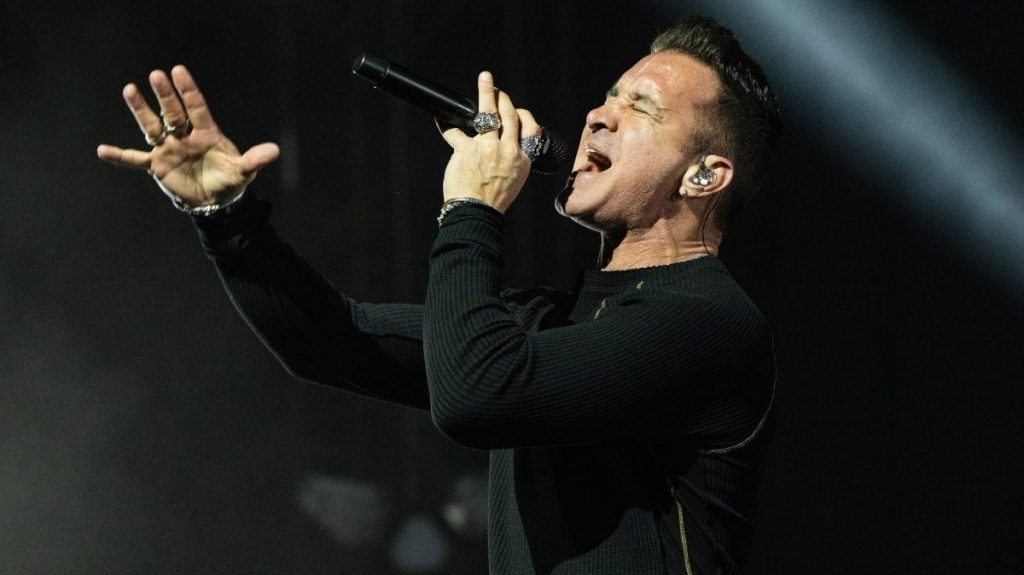Want the best of VICE News straight to your inbox? Sign up here.
Over the past few months, Jay said, she’s transformed a “shitshow” of a vacant five-bedroom house in Philadelphia into something she’d describe as move-in ready, if not beautiful.
Videos by VICE
The 29-year-old painted extensively, laid down carpet, and installed several new appliances, making the abandoned home into a comfortable place for her husband and three of her children to live. She eradicated the bugs. And she’s working on the rodent problem, too.
“We’re all very excited about the outcome,” said Jay, who asked to be identified by a pseudonym. “Just being able to get in somewhere stable. Somewhere that’s, you know, ours.”
But, technically, the home she’s been working so diligently to create isn’t hers. It’s the Philadelphia Housing Authority’s. And the agency wants her out.
Around the time Philadelphia issued its “stay-at-home order” for the coronavirus, in late March, local activists quietly moved about 40 homeless people, including Jay’s family, into 10 vacant homes. But all of the properties are owned by the Philadelphia Housing Authority (PHA), organizers say, and the public agency — which is independent of the city’s government — has decried the protest as illegal and dangerous.
The activists, who belong to various organizations, like Occupy PHA, the Workers Revolutionary Collective, and the Black and Brown Workers Cooperative, argue the federally-funded agency is stoking gentrification by selling its properties while also allowing viable homes to decay as families wait for a chance at renting an affordable unit. They’re now demanding that the housing authority and other development agencies transfer ownership of the vacant properties into a community land trust, where the homes would be set aside for permanent low-income housing. And they want homeless people like Jay to be able to continue living in the properties they’ve been squatting in for the past few months, too.
“I never saw myself having to do something like this.”
“Most people really just need to have the place to be. They don’t really require a lot of anything,” said Jennifer Bennetch, an advocate who helped facilitate the takeovers and has long protested against the Philadelphia Housing Authority through her group, Occupy PHA. “Sometimes you just have to go with your heart and do what you know you should do.”
Jay didn’t know where to go when she became homeless for the first time this past winter. Her landlord moved her family out because he was selling the property, and she couldn’t afford another place. Although she and her husband work — Jay is a housekeeper — they had exhausted much of their savings preparing for a newborn baby.
Jay had also been waiting on a list for housing with several agencies, including the Philadelphia Housing Authority, for many years, but she couldn’t wait anymore. She has an immune deficiency, and living between her car and a hotel room for months during a global pandemic was terrifying. The vacant home has given her a place to quarantine.
“I feel that they should at least give us a chance,” Jay said.
A “desperate move”
Philadelphia is the poorest large city in America. It’s also contending with a shortage of affordable housing. While the homelessness crisis there isn’t nearly as severe as those in New York City or Oakland, about 5,700 people still live in shelters or on the streets across Philadelphia.
Christina Berry, a 45-year-old single mother, is also living in one of the vacant properties with four of her children. Like Jay, she said she exhausted her other options before winding up at the Philadelphia Housing Authority home.
When her son told her about the takeovers, she saw squatting as a “last-ditch effort” and a “desperate move.” But she had already tried getting on the authority’s waiting list and approaching private landlords, with no immediate luck. Her family was squeezed into her mother’s one-bedroom home, which broke the apartment’s rules against extended guests. She didn’t want to see her mother evicted, especially during the coronavirus pandemic.
“I never saw myself having to do something like this,” said Berry, who moved to Philadelphia at the onset of the coronavirus pandemic.
Although these squatting campaigns can be controversial — and difficult for the residents who fear they’ll be kicked out at any moment — they’re not all that uncommon, especially since the pandemic took hold in the U.S. And some have led to serious change.
In the ‘90s, homeless people in large cities across the country, including Philadelphia, organized similar “takeovers” of vacant properties financed by the U.S. Department of Housing and Urban Development. Their efforts successfully pressured some cities into investing more deeply in affordable housing projects.
More recently, a group of homeless people in Los Angeles “reclaimed” about 12 vacant, government-owned homes in early March, just before the new wave of Philadelphia occupations began on the opposite side of the country. The Los Angeles activists also demanded that California put its vacant properties to use as shelter for the homeless.
And in November, a group of Black homeless women, who called themselves Moms 4 Housing, moved into a vacant, investor-owned home in Oakland. The mothers, who galvanized a movement around the city’s affordable housing crisis, lived at the property for nearly two months — and even celebrated Christmas there. Then cops in riot gear showed up to evict them early one morning.
In the aftermath, though, the property owner agreed to sell the home to a local community land trust that had committed to keeping the property affordable, which the mothers had demanded all along.
But when the Philadelphia activists first started their squatting campaign in late March, they didn’t announce their takeovers for weeks. And they still won’t disclose the addresses of the occupied homes. They don’t want people to be removed by the Philadelphia Housing Authority’s police force.
The agency told VICE News that it’s committed to not sending police officers to the homes and that it will work, instead, to remove the families through a legal court process. But a police officer still showed up to the property Jay is occupying on Thursday, and Bennetch filmed the interaction. Although the encounter ended peacefully, Jay, who was inside the home at the time, said it was nonetheless “very scary.” She said she had already received a written notice to vacate the property earlier this week.
Nichole Tillman, a spokesperson for the Philadelphia Housing Authority, said police weren’t there to kick Jay out and that the trespassing notice wasn’t intended for her, but a prior occupant of the home. The agency’s employees, who are often accompanied by an officer for their safety, came to assess the property to determine what sort of repairs needed to be made to make the home safe for occupancy again. Then they were “confronted by illegal occupants,” she said.
Tillman said occupations aren’t the right way to go about addressing the city’s affordable housing crisis. She said the takeovers aren’t fair to the 40,000 people currently waiting for a place to live after going through the agency’s legal process. The agency, however, is also working with a local legal aid organization to “relocate the illegal occupants to appropriate housing.”
“We are dismayed and concerned that the Occupy PHA leader is assisting individuals to illegally squat in vacant houses around the city,” Tillman said in an emailed statement. “This action is not only illegal, it is dangerous, and pose a real health and safety risk to not only the squatters neighbors as well.”
Bennetch also received a cease-and-desist order last month, which she shared with VICE News. The Philadelphia Housing Authority warned her that she could be subjected to criminal charges, including trespassing, for “willfully and illegally” entering their property, and assisting others in doing the same.
But she’s standing her ground.
The activists feel their work is a testament to what the properties could become with a bit of resolve: They’ve fixed up the homes as best they can, Bennetch said, including tarring roofs and repairing pipes. The families have settled in and don’t want to leave considering the amount of work they put into the homes. (Tillman said that the housing authority is “deeply concerned” about illegal repairs or utility hookups, which they say are dangerous.)
“Our housing authority is hoarding these vacant properties, and there’s hard-working families that can’t afford to live anywhere,” Bennetch said.
The Philadelphia activists have done more than just take over the vacant homes, too.
Their efforts are connected to two encampments in the city, where homeless people are rallying around demands for housing. One, located along the Benjamin Franklin Parkway, hosts about 140 homeless people, according to Bennetch. The other encampment is a splinter off the first, and is outside the Philadelphia Housing Authority’s headquarters. About 20 to 25 people live there.
The activists have other demands about the general treatment of homeless people in the city, but their primary concern is getting people a permanent place to stay.
“They’ve experienced so much trauma and grief, and constantly living in precarity, also experiencing the traumas of living on the street,” said Sterling Johnson, an organizer with Black and Brown Workers Cooperative, which is also involved in the movement. “People are fighting for a limited amount of resources when there are actually a lot of resources that people are hoarding from them.”
Cover: A “before” of the house Jay and her family are currently residing in. (Provided by Jay.)
More
From VICE
-

Scott Stapp of Creed (Credit: Scott Dudelson/Getty Images for Stagecoach) -

Screenshot: CD Projekt Red -

(Photo by Scott Dudelson/Getty Images for Coachella) -

Vinnie Zuffante/Getty Images
